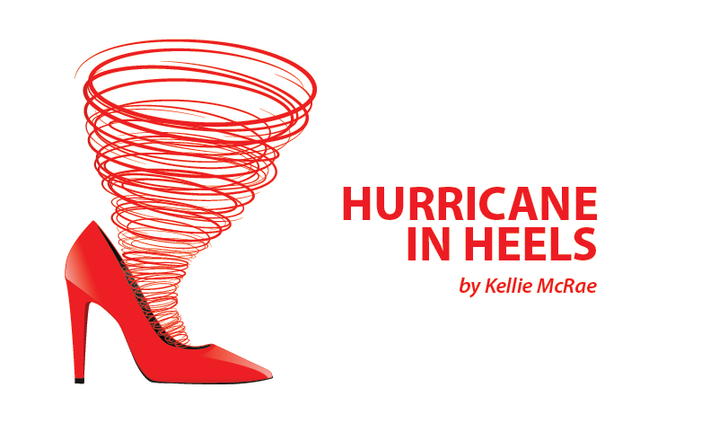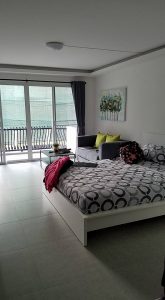Decision to Leave the US for Better, Less Costly Healthcare Worked for Me


 There are so many things that make America a wonderful place to live. However, after I was diagnosed with lupus I felt as if the U.S. was not the best place for me to remain because of the healthcare I was receiving. For months I went to many specialists who were doing their absolute best to figure out what was wrong with me. As a Desert Storm veteran, the U.S. Department of Veteran Affairs (VA) was one of the first options available to me. It became evident that the system there was overworked.
There are so many things that make America a wonderful place to live. However, after I was diagnosed with lupus I felt as if the U.S. was not the best place for me to remain because of the healthcare I was receiving. For months I went to many specialists who were doing their absolute best to figure out what was wrong with me. As a Desert Storm veteran, the U.S. Department of Veteran Affairs (VA) was one of the first options available to me. It became evident that the system there was overworked.
While I was in the early stages of my illness, I was fortunate enough also to have insurance through my employer. This allowed me the ability to go to a “civilian hospital” to get care. It was during this time that I started to realize healthcare in the U.S. is simply overwhelmed. Regardless if you are a veteran, getting the personalized care that would help make you feel better was just not possible.
 My primary care doctor informed me the sun was not good for my condition. During this time I also was so low on energy that just speaking would be cause for a few hours sleep. Walking up the stairs became an increasingly difficult task. Out the window went my career in real estate. My doctor even suggested that I should seek disability. Of course, this was not the news I wanted to hear. I actually enjoyed what I did for a living. I took great pride and pleasure in it. The idea of going on disability was frightening to me. I started researching what disability would entail for my life and my care.
My primary care doctor informed me the sun was not good for my condition. During this time I also was so low on energy that just speaking would be cause for a few hours sleep. Walking up the stairs became an increasingly difficult task. Out the window went my career in real estate. My doctor even suggested that I should seek disability. Of course, this was not the news I wanted to hear. I actually enjoyed what I did for a living. I took great pride and pleasure in it. The idea of going on disability was frightening to me. I started researching what disability would entail for my life and my care.
I have always had the desire to retire abroad, and wondered if I should leave the U.S. to seek better treatment options. I began looking at quality of life, healthcare access, quality of healthcare and the costs of an international move. It can be quite expensive, but I had some savings and a modest residual income. The more I researched, the more determined I was to find my care outside the U.S.
I stumbled upon Thailand. I had never had any part of Asia on my travel bucket list, and here I was working on figuring out how to move without so much as a visit. Lupus is so prevalent in both blacks and Asians that the doctors in Thailand receive extensive training on the disease. Nearly any doctor in Thailand can treat you because they are well-versed in the disease. The major hospital in Bangkok (ranked in the top 10 in the world,) has a lupus specialist. I checked off the concern about the quality of the care that I would receive. Many of the doctors are trained not only in their own country, but are also in the U.S.
I started wondering about the language and the quality of life in Thailand. I felt as if my transition would be less stressful because many people in Thailand speak some English (especially in larger cities). Some of the homes also are quite modern. (See accompanying photo.) There is a tiny kitchen and a very modern bathroom with a rain shower. The building has on-site laundry, a small convenience store, a coffee shop and a yoga studio. The rent is $280 per month. It costs roughly around $9 to have the apartment cleaned (three ladies show up). Laundry service typically runs between $3 to $9 depending on how many loads are being washed, dried and folded.
After all my research, I felt that the quality of life would be good for me in Thailand. My next concern was the cost of the care. Would I be able to afford the long-term care that lupus requires? I was surprised to learn that you can receive an estimate of how much a doctor’s visit will cost if you are able to provide them with the details of why you are booking an appointment. They take into account the reason for your visit, like a chronic illness, along with your required tests and time needed with the doctor, so you’ll know ahead of time what your expenses will be. I’ve never had this experience in the U.S., and often felt like figuring out what an insurance company will and will not pay for was enough to make my head spin.
I eventually sold my belongings after reviewing all of the pros and cons of moving to Thailand. As soon as I could walk and talk at the same time, I moved. The transition has been quite smooth. The first week after I arrived I was hospitalized for four days. It was during this time that I learned first-hand about the quality and cost of care. The bill for my four-day hospitalization came and I created a video showing the costs. It was the only time I had ever been excited about a bill because it was mere pennies compared to what it would have costed in the U.S.
The decision to leave the U.S. was not an easy one. There have been moments of loneliness because I moved to a place where I have no friends or family. I spent the Christmas holiday with virtual strangers, but I am adjusting. I would say that my expectations have been exceeded.
As you may know, stress is a trigger for lupus. Thailand is a country that truly practices “don’t sweat the small stuff” and it rubs off. My stress has melted away and almost everywhere you look, there are beautiful flowers. Since being here I have experienced low stress from quality of care, low stress from cost of care and low stress from just a low-stress society. Moving to Thailand was a great plan for me.
Note: Lupus News Today is strictly a news and information website about the disease. It does not provide medical advice, diagnosis, or treatment. This content is not intended to be a substitute for professional medical advice, diagnosis, or treatment. Always seek the advice of your physician or other qualified health provider with any questions you may have regarding a medical condition. Never disregard professional medical advice or delay in seeking it because of something you have read on this website. The opinions expressed in this column are not those of Lupus News Today, or its parent company, Bionews Services, and are intended to spark discussion about issues pertaining to lupus.







Sandra Qayyum
Great story. I was diagnosed with Lupus may 2016 I wish there was some type of group available to share and to listen.
Kellie McRae
Hi Sandra, If you are not opposed to online groups (which is quite convenient considering the fatigue we often experience) you can find a lot of different groups. I admin 2 support groups, one is dedicated to Lupus. Its on Facebook and we are approaching 2k members. Lots of information shared, good days and bad days. We all understand each because we are all battling. Please visit us at Lupus Loud or The Autoimmune Box, we will be happy to have you.
Laney Griner
Wow, what a great story! And so similar to mine, as far as lupus-poopus goes. Though I got my dx as a young teenager, and now, at age 41, I feel like I've lived a lifetime with this cruddy disease.
Unfortunately, I had to stop working and get disability after my extremely problematic pregnancy with my son, at age 30. I really took pride in the technology industry I'd been able to move ahead in. Not working is..well, just weird. And lonely and boring. But my health is so unpredictable that I became an unreliable employee and that was difficult to accept also.
I've often wondered about treatment of lupus in countries with doctors who are well-trained on how to fight this. I know it's most prevalent in black and Asian communities. (I'm a white redhead so how did lupus target me?! Haha)
Again, thank you for this. I was very happy to read your story. Moving to another country sounds great for many reasons lately, considering who is in charge now... but the idea of getting great medical care AND not having to pay hundreds, even thousands a year for Dr visits and medicine, sounds pretty incredible. And low stress, too? Girl where do I sign up? I'm ready!!
Thank you again. You've inspired me.
Kellie McRae
Thanks for commenting Laney, yeah even though lupus seems to like Blacks and Asians, it believes in dragging others along as well. It is weird not working a traditional job or leaving the house to earn. I had to re-train myself to do other things and I am actually happy for the lessons. I keep telling folks, I am recruiting neighbors lol so pack up and come on over. The care is great and its actually affordable. I wish we had such great care at an affordable price back home. It was a big decision to leave all I knew and loved but I really am learning a lot about myself on this journey and bringing awareness at every opportunity.
Laney Griner
You are very good at selling this. I bet you were great at real estate!
It's a very unexpectedly enticing. Like you, I never thought I'd travel to Asia. I just watched a nature show the other day about Thailand and I thought wow, so beautiful and interesting, I'd like to visit there. Then you write this and suddenly I'm seriously considering a move.
My husband is a tattoo artist. Do you see tattoo shops around?
You mentioned you aren't working now. Do you live on savings? (Sorry if that's rude to ask.) I receive disability here. I just don't know how I'd have an income.
I'm a photographer so I'm now thinking of all the great photos I would get there. Such a beautiful place.
Kellie McRae
Hi again Laney :-) Welcome back! It's not rude to ask since I am offering up the info and saying hey you should move abroad. Very natural questions under the circumstances. I do have some savings but I started an online business before I left the States. I had been a fashion blogger along with my Real Estate business and learned a lot of the ins and outs of earning. I now have a business that helps people like us who can no longer work a traditional job,learn how to create online income.
There are tattoo shops here but in order to start a legitimate business, he would have to get a visa. Thailand is very particular about foreigners coming in and taking jobs that could belong to their citizens but if you all are serious about coming, there are expats who do own businesses that perhaps I can connect you to and they can tell you how they did it. As far as your disability, you could probably live pretty decently on it here and once you have it you have it. I applied and because I now live abroad, my file was transferred to the international offices so I deal with a woman in the Phillipines for all the paperwork hoops they make you jump through so you would still be able to keep that income. Food is dirt cheap here, if you shop in the local grocery stores as opposed to the ones that import from America, you save a lot. They have much of the same stuff just not same brands. If you eat out and eat the local food, you can have breakfast, lunch and dinner for about $6 a person. I live in a cute studio apartment, there is a laundry service in my building (costs me roughly $9 for 2 weeks of laundry) there is a coffee shop in my building, I have 24 hour security with a card entry to come to my apartment and I have 3 ladies come to clean my place once a week, that's roughly $8. My rent is $286 a month, you can rent an entire 3 to 4 bedroom house for $550 and up. A doctor visit is about $17, medications for the most part are over the counter and very reasonably priced. I think I have covered the major stuff but if you have more questions, feel free to ask. Do not feel like you're being rude, I want people to realize there are other options for long term healthcare and the doctors actually listen to you and you get a real doctor. No physicians assistants, no nurse practitioners, actual doctors and nurses.